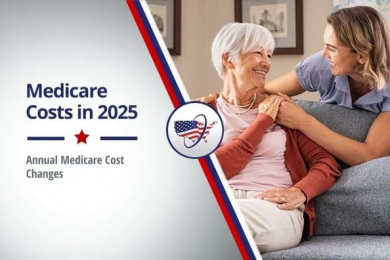Interesting Preliminary Drug Pricing Survey Results
Interesting Preliminary Drug Pricing Survey Results
We have the preliminary results from our Seniors Speak Out survey and the results are proving to be very interesting. Our survey focused on the recent drug pricing proposals that have been put forth by different politicians, mostly recently by President Biden in his State of the Union address. We thought it would be important for you to let your voice be heard. Our questions avoided some of the rhetoric that has accompanied the drug price discussion, identifying in the questions some of the consequences of the different proposals. The results were very interesting.
It is important to note that these are preliminary results – the final results will be in later this week. You still have a chance to participate in the survey before it closes. Click here to take the survey. You might want to take the survey before you continue reading this blog, so you won’t be “swayed” by the preliminary results. You should also know that I will be discussing the drug pricing topic with former Speaker of the House Newt Gingrich on Thursday, March 24th at 1:00 PM ET. You can tune into the event once it is live by clicking here. If you’re able to attend, mark yourself as “interested” in attending.
Question one.
What top two healthcare priority issues are you concerned with this year?
Answers:
- 16.7% – More access through federal healthcare programs (Medicare, Medicaid, VA) to innovative drugs and treatments.
- 7.5% – Ensuring we have vaccines and treatments for future pandemics like COVID-19.
- 37.5% – Lowering drug costs.
- 38.3% – Lowering all healthcare costs
Analysis:
The first thing that caught my attention was the fact that we seem to be done with the pandemic; it was deemed least important. The top two choices, not surprisingly, dealt with cost. What was surprising was the number one choice, lowering all healthcare costs. With all the media and rhetoric focused on drug costs you still recognized that other aspects of our healthcare have had price increases and we should concentrate on all aspects of our healthcare costs.
Question two.
Government price controls could limit the number of drugs and treatments available to patients, taking away choice and flexibility in treatment plans. Does this concern you?
Answers:
- 91% – Yes
- 9% – No
Analysis:
Government price controls only work when access and choice are rationed. A good example of this limited accessibility is the government formulary for the Veterans Administration drug program, which has about half as many prescription drugs available as Medicare Part D.
Question three.
Government price controls could devastate biopharmaceutical innovation and make it more difficult for patients to access advanced treatments for serious conditions like Alzheimer’s, heart disease, and diabetes. Is this concerning to you?
Answers:
- 83.6% – Yes
- 16.4% – No
Analysis:
While we don’t know exactly how much innovation will be affected by government price controls, the Congressional Budget Office has indicated there would be some reduction in the number of new drug discoveries, with the small and limber biotechnology firms being impacted the most. You overwhelmingly thought that this negative impact on innovation was a bad idea.
Question four.
Below is a list of drug pricing policy proposals. Which proposal would you rank as your number one choice for proposals for lawmakers to pass:
Answers:
- 10.4% -Allow drugs to be imported from other countries despite safety concerns
- 35.8% – Caps on out-of-pocket drugs costs in Medicare Part D.
- 13.4% – Allowing the government to set the price of drugs (some call it “government negotiation”).
- 40.3% – Transparency within the drug pricing system.
Analysis:
I am so encouraged by your recognition that drug importation and government price fixing are not viable, long-term solutions to lowering your cost of prescription drugs. You also recognize that having a cap on our drug costs would give us the peace of mind that we won’t be bankrupted by the cost of our prescription drugs. Your number one selection reveals your understanding that any long-term solution needs pricing transparency, enabling the patients to share in the savings.
Question five.
Do you feel like your Medicare Advantage or Medicare Part D prescription drug plan makes prescription drugs more affordable and accessible?
Answers:
- 50.7% – Yes
- 49.3% – No
Analysis:
I’m somewhat confused by these results. Over the last 15 years, surveys on the satisfaction of Medicare Part D have been at or near a 90% satisfaction rate. I would like to find out why only half of you thought Part D made your drugs more affordable and accessible. This might be a subject for a future blog.
I appreciate your willingness to take the survey and tell us how you feel about these proposed drug price solutions. I am looking forward to talking with Speaker Gingrich this Thursday about these issues.
Again, you can take the survey by clicking here. You can join Speaker Gingrich and me on Thursday, March 24th at 1:00 PM ET. You can tune into the event once it is live by clicking here.
Best, Thair
Editor’s Note: Today’s guest column on the potential for a “business bonanza” in 2025 comes from Manward Press Chief…
Copyright © 2025 Retiring & Happy. All rights reserved.








